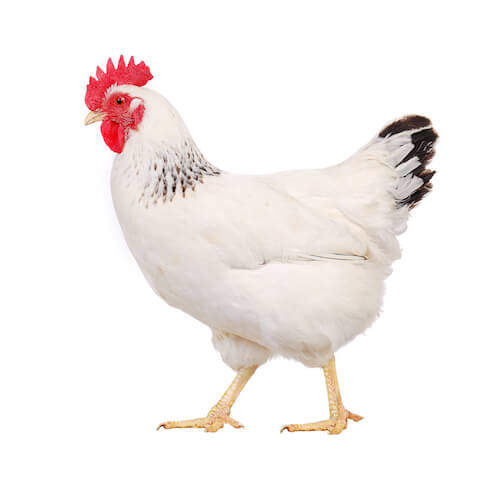Recent surveys show that chickens are an increasingly popular pet choice today. Out of nearly 1,500 respondents, an estimated 71 percent of chicken owners have kept their birds for less than 5 years and are eager to learn more about keeping happy, healthy chickens.

Pros
Owners cite the following logistical pros for owning backyard chickens:
- A steady source of fresh, tasty, organic eggs and meat.
- The chance to earn income from raising chickens.
- The chance to compete in show competitions.
- A natural source of pest and weed control for home gardens.
- A chance to provide better health and welfare for their chickens.
- An opportunity to learn a new skill and develop a rewarding hobby.
- Chickens are fun companions! Chickens are smart, curious, inventive and sociable, all of which make for some great interactions. They not only enjoy each other’s company, but they enjoy human company and can easily learn faces (especially of those who bring their daily feed and offer treats regularly).
- Owning chickens make for great family learning projects. Raising chickens is a great way to teach kids about the cycle of life and develop their interest in the natural world.
- Chickens are free fertilizer producers. Chickens poop fast and copiously, which is great if you are in the market for composting or fertilizer for your garden. You just need to do a bit of pre-treatment to make sure it is safe to use, and then you can look forward to free fertilizer for life.
- Baby chickens are very cute. It is nearly impossible to hold a baby chick in hand without “oohing” and “aahing” over its cuteness. This is a great stress-reliever and also a wonderful way to bond with the new members of the family.
Cons
Owners cite the following logistical cons for owning backyard chickens:
- Lack of knowledge about possible health issues that can affect poultry and/or people.
- Hampered ability to prevent predation.
- Zoning obstacles that may interfere with or even prevent chicken ownership (including financial penalties for unknowingly keeping chickens in an area where it is not permitted).
- Concerns about chicken diet and nutrition.
- Difficulty with obtaining accurate information about chicken ownership in the face of conflicting guidance available in books and online.
- Challenges with chicken habitat and soil management.
- Chickens can get ill and die. It can be very hard to watch a beloved friend sicken and die, whether from disease or simple old age. But this is to be expected, as is predation (humans are not the only ones who think chicken eggs and their layers make for tasty dinners).
- Chickens can be costly. To keep chickens in the right way will take some investment. Chicken feed, nutritional supplements (such as grit and oyster shell, general wellness and sick care, habitat (especially security against predation), nesting materials and the time investment involved to keep their living quarters clean and safe can all add up.
- Chickens are not egg factories. Different factors can influence how many eggs the average chicken will lay, from breed to weather, health to age.
- Chickens can be messy and noisy. Chickens are very social and vocal birds. They are also fairly laid-back about their toilet and preening activities, which can leave dust, feathers and poop just about anywhere they have been. If you add in a rooster, the effect (of noise in particular) will be doubly compounded.
Minimizing Cons & Maximizing Pros of Chicken Ownership
The best way to minimize the cons and maximize the pros of chicken ownership is simple: select the breed(s) of chickens that will thrive in your local climate.
For example, some chicken breeds are much more cold-hardy or heat-hardy than other breeds. So be sure to research breed climate tolerances before choosing the chickens you plan to raise.
Further Reading
Sources
researchgate.net
ouroneacrefarm.com
backyardchickens.com
fao.org
Reviewed By: Tim Winter

Tim Winter has a strong affection for pets and wildlife. His years of experience caring for various types of pets has led him to share his knowledge with others on the best practices in pet care. Tim holds a Bachelor of Science from the University of Oregon School of Journalism and Communications.
